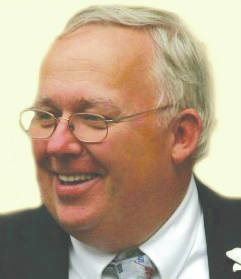It is common when studying written documents to look at the circumstances, the predicaments, surrounding the text. Example: Grabbing your rich uncle, putting a gun to his head, and having him write a will leaving you his vast fortune will not stand up in a court of law because uncle was not of “sound mind.” He was under duress and in fear of his life.
The first amendment to the Constitution reaffirms our right to freedom of religion, speech, the press, assembly, and to petition the government. When it comes to the freedom of religion, it states, “Congress shall make no law respecting an establishment of religion, or prohibiting the free exercise thereof.”
What are the circumstances that brought about the writing of that phrase? England had a state church – The Church of England. No other church was allowed. Baptist, Methodist, Catholics, Presbyterians, and many others fled England to come to a land where they could worship as they pleased, not as the throne dictated.
Due to the circumstances, the framers of our Constitution had lived through; their intent was just as the document says, the national government (Congress) could not establish a church, or religion, and tell people how to worship. The people had free exercise to worship as they pleased. In other words, the government has no right to force you to be a Baptist, Catholic, Methodist, or whatever.
Our nation seems to have taken this to an extreme, far beyond the intentions of the writers. Think about how picky lawyers and the courts are about the wording of a document. Every word, the placement of each word is looked at to determine what something says. With that in mind, ask yourself the following question – Should a public school teacher be allowed to pray at the start of a class?
Many will claim, “No! Separation of church and state!” Now think of the wording of the first amendment. The teacher is not Congress; no law passed, no church established. If the teacher, the individual, is prohibited from praying by the first amendment, is that not “prohibiting the free exercise” of the teacher’s religion?
The founding fathers used God as their reason to break away from England and establish the United States. There are four references to God in the Declaration of Independence.
The “laws of nature and of nature’s God” entitle the United States to independence.
People are “endowed by their Creator with certain unalienable rights.”
Congress appeals “to the Supreme Judge of the world for the rectitude of our intentions.”
The signers, “with a firm reliance on the protection of divine Providence,” pledge to each other their lives, fortunes, and sacred honor.
It would seem foolhardy to think the leaders of the day would announce to the world that God is the establisher of their rights, the one who justifies their actions, and the one only through whom what they are doing can succeed, turnaround after the dust is settled and say that God has no place in whatever they do.
Some will refute what I just said, by claiming the Declaration is not a legal document. In response to that – because of the Declaration, the colonies believed they were free from England and England took it to be a declaration of war. Today, a person may claim the Declaration of Independence was not a legal document, but at the time, both sides thought it had the authority and was legitimate enough to start a war, change maps, and alter the course of history.
Should a politician keep his religion out of the decisions he makes or the votes he casts?
As far as the Christian goes, 1 Corinthians 10:13, “Whether therefore ye eat, or drink, or whatsoever ye do, do all to the glory of God’” If, in everything we do, we are to give glory to God, that would include casting a vote. That would go for the elected official on the floor and Joe Public in the ballot box.
To the Jew and the Christian, honoring God is the first and greatest commandment (Exodus 20:1-3; Matthew 22:34-40).
All religions have the principle of putting God first. How can anyone, who claims to believe in any god, vote for laws of the land without considering his beliefs? To do so would be to deny the God he believes in, therein, making his religion void.
Life and God are intertwined; therefore, so is politics. America’s founders understood this. That is the reason they would not establish a state church or restrict people from worshipping their God.
In the birth of our nation, the Continental Congress declared the laws of God entitled us to be free from Britain, that an individual’s rights came from the Creator, that the Supreme Judge would decide the right or wrong of their actions, and everything — their lives, fortunes, and sacred honor were in the hands of the Divine. These were not men that thought God was not to be a part of public life.






